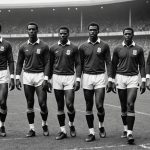Key Factors Behind UK Fighters’ Success in Combat Sports
Delving into the factors contributing UK fighters’ success reveals a blend of tradition, infrastructure, and cultural mindset. A cornerstone is the robust training infrastructure and gym culture in the UK. Elite gyms scattered across the country nurture talent through cutting-edge facilities and experienced coaching. This environment cultivates discipline, technique, and resilience, setting UK competitors apart.
British sporting traditions also underpin this success. The cultural mindset of grit, determination, and respect for sportsmanship often fuels fighters’ mental toughness. These values are deeply ingrained, influencing training habits and fight preparation, which enhances performance against global opponents.
In the same genre : What Are the Factors Contributing to the Popularity of Combat Sports in the UK?
Statistically, UK fighters consistently rank highly in international competitions, reinforcing their global standing. Their adaptability across diverse combat sports—from boxing to MMA—marks them as formidable contenders worldwide. Against the backdrop of intense global competition, UK athletes’ achievements emanate from this synergy of superior training environments, cultural heritage, and a results-driven mindset.
Understanding these dimensions provides clarity on why UK fighters maintain a competitive edge over international peers, showcasing an ecosystem geared toward sustained combat sports excellence.
Have you seen this : How Has the Legacy of UK Combat Sports Evolved Over the Decades?
The Importance of Coaching Styles and Development Pathways
In the realm of elite training UK fighters, coaching styles play a pivotal role. British coaches often emphasize a blend of technical precision and mental fortitude, fostering resilience and adaptability. This distinctive approach reflects the broader ethos of coaching styles UK fighters prefer—balancing discipline with creativity to unlock an athlete’s potential.
When considering athlete development UK, structured youth programmes serve as essential stepping stones. These pathways nurture talent from grassroots levels, providing access to quality facilities and experienced mentors. This coherent progression sustains a pipeline of fighters equipped for international competition.
A prime example is how some renowned coaches tailor their methods to individual fighters, ensuring bespoke training that addresses specific strengths and weaknesses. Such bespoke coaching not only amplifies performance but also builds long-term career sustainability. These case studies highlight how British mentorship shapes champions, embedding a culture where potential meets opportunity.
Understanding these dynamics offers aspiring fighters and supporters insight into why the UK remains a powerhouse in combat sports through its focused coaching styles and carefully designed development pathways.
Historical Background and National Policies Fueling Progress
The history of UK combat sports is rich and dynamic, deeply rooted in boxing’s long-standing legacy. Boxing first took hold in the UK during the 18th century, evolving through bare-knuckle bouts to modern professional contests, setting a robust foundation for later martial arts like MMA and kickboxing. This legacy established a passionate fan base and rigorous training culture that persists today.
UK sports policies have played a crucial role in bolstering this foundation. Government funding, particularly through UK Sport, has strategically targeted combat sports, providing essential resources for fighter development and competition exposure. These initiatives not only enhance athlete performance but also promote grassroots participation, ensuring a steady influx of talent.
Several notable eras and turning points mark the progression of combat sports in the UK. The rise of British boxing champions in the mid-20th century elevated the sport’s status, while more recent decades saw MMA and kickboxing gain traction through increased media coverage and professionalization. National support for fighters has been pivotal throughout, creating a climate where combat sports thrive and British athletes excel on the global stage.
This blend of deep-rooted tradition and purposeful policy has driven the UK’s combat sports scene forward with impressive results.
Unique Psychological and Social Factors Driving UK Fighters
British fighters often demonstrate remarkable psychological strength shaped by both individual and social influences. Central to their resilience is the strong connection to local community support and sports club networks. These environments cultivate a sense of belonging and collective motivation, reinforcing fighters’ commitment through shared experiences and encouragement.
The concept of grit and perseverance is deeply ingrained in the training culture. UK fighters are encouraged to endure adversity and setbacks, using psychological preparation techniques such as visualization and mental conditioning to maintain focus under pressure. This mental toughness is not accidental; it reflects a broader societal appreciation for determination and hard work.
Social values in the UK further impact athlete mentality by promoting fair play, humility, and respect for opponents. These values contribute to the development of balanced competitors who can manage the psychological demands of fighting without compromising sportsmanship. Overall, the fusion of community backing, mental resilience, and cultural principles creates a unique foundation for the success of UK fighters in competitive settings.
Profiles of Notable UK Combat Sports Champions
Explore the legacy left by some of the most famous UK fighters across multiple disciplines, including boxing, MMA, and kickboxing. Their achievements define the spirit of British combat sports and inspire new generations.
UK boxing champions have a proud tradition, boasting figures like Ricky Hatton and Lennox Lewis, who not only dominated their weight divisions but significantly influenced the sport’s global appeal. Their commitment to excellence and resilience in the ring highlight what makes a UK boxing champion truly unforgettable.
In MMA, UK MMA stars such as Michael Bisping and Darren Till have pushed the boundaries of the sport, showcasing skill diversity and strategic prowess. Their journeys from local gyms to international arenas demonstrate the rise of MMA in the UK and its growing fanbase.
Kickboxing success stories are equally compelling, with names like Liam Harrison representing the UK on a world stage. These athletes combine speed, power, and precision, continuing to elevate the sport within the competitive landscape.
Together, these champions embody the elite level of UK combat sports, proving that the nation produces talent capable of competing—and winning—at the highest level worldwide.
Comparative Analysis: UK Fighters Versus Global Counterparts
UK vs global fighters show distinct differences in training methodologies, mindset, and available resources. British fighters often emphasize technical precision and a strong work ethic, supported by well-established boxing gyms and experienced trainers. In contrast, some international combat sports scenes—such as those in the US or Latin America—may integrate more diverse training approaches, blending multiple martial arts styles, which can broaden fighters’ adaptiveness.
When examining success rates, UK fighters consistently perform well in boxing and mixed martial arts circuits. Their achievements in international competitions highlight resilience and tactical discipline, often outmatching counterparts in pure striking skills. However, the global stage reveals areas for growth, notably in grappling or ground fighting techniques where fighters from Brazil or Russia frequently excel.
Insights from global sports analysts emphasize that UK fighters combine traditional combat sports heritage with modern sports science, a blend that fuels competitive edges. UK fighters themselves reflect on the mental toughness demanded at elite levels, emphasizing focus and adaptability—a mindset pivotal in facing diverse international opponents. This underscores why UK vs global fighters comparisons consistently showcase British contenders as formidable yet evolving competitors.
Expert Insights and Anecdotes Illustrating UK Success
Insights from expert opinion UK combat sports highlight a unique blend of dedication and innovation fueling British dominance. Renowned coaches emphasize rigorous training regimes tailored to individual fighters’ strengths, underscoring the UK’s commitment to cultivating well-rounded athletes. Analysts frequently point out the mental resilience ingrained in British fighters, attributing success to both strategic preparation and psychological toughness.
Insider stories UK fighters share often revolve around overcoming adversity through community support and disciplined practice. One notable example is a British fighter who credits local gym culture for fostering camaraderie that sharpened skills and boosted confidence in high-stakes bouts. These success stories British fighters embody demonstrate how personal determination combined with structured mentorship drives consistent achievement.
Lessons other nations can learn from the UK’s approach include prioritizing grassroots development and mental preparation alongside physical training. Embracing this comprehensive model can elevate fighters’ performance globally. Understanding this, countries aiming to replicate UK success should foster environments where technical expertise and psychological toughness coexist, drawing directly from expert opinion UK combat sports and numerous insider stories UK fighters have revealed. This integrated approach continues to solidify Britain’s position at the forefront of combat sports worldwide.





